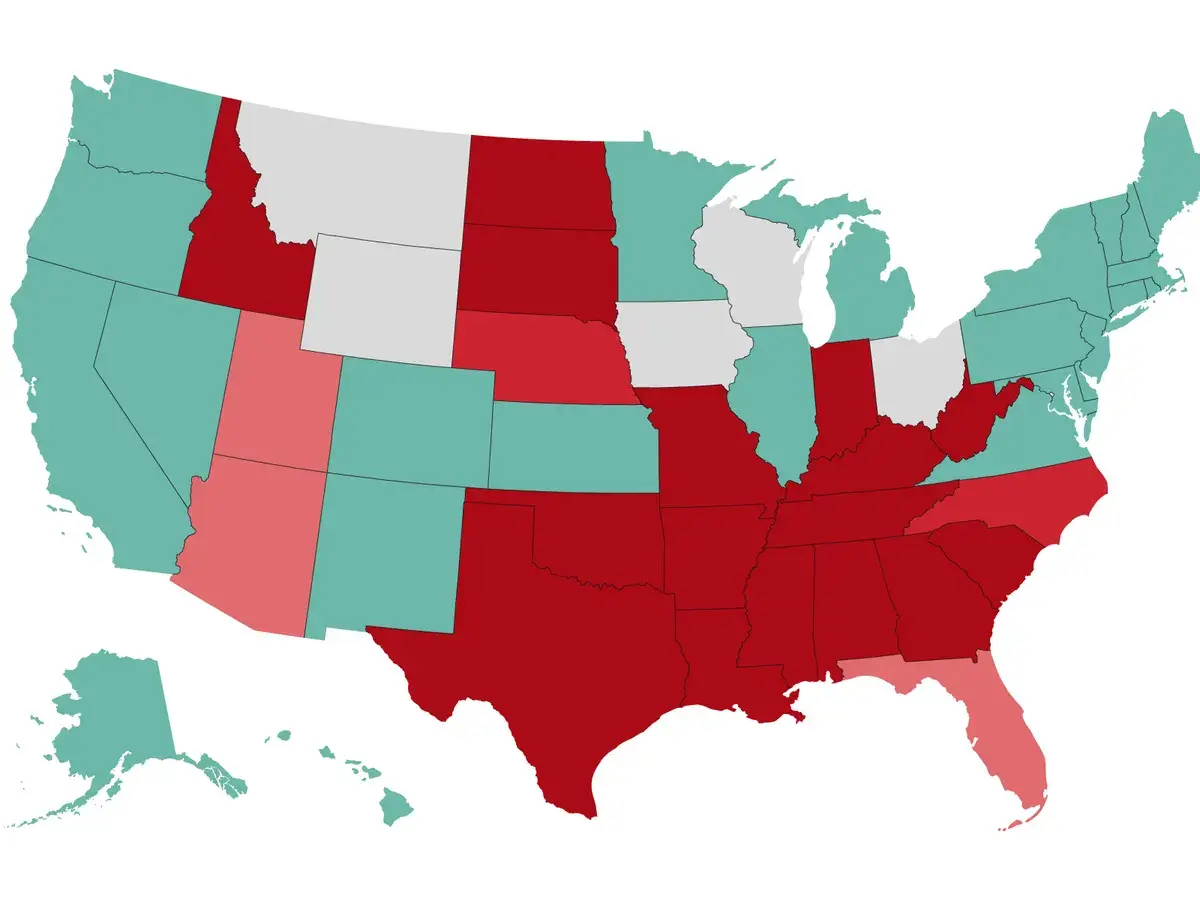
Newsletter Subscribe
Enter your email address below and subscribe to our newsletter

Enter your email address below and subscribe to our newsletter


The legal landscape surrounding abortion in the United States has undergone a dramatic shift in recent years, culminating in the landmark Supreme Court decision of Dobbs v. Jackson Women’s Health Organization in June 2022.
This decision overturned Roe v. Wade, the 1973 case that established a constitutional right to abortion nationwide. With Roe overturned, the authority to regulate abortion access has shifted back to individual states.
Prior to Roe v. Wade, abortion laws varied widely across the country. Some states completely outlawed abortion, while others allowed it only to save the life of the mother or in cases of rape or incest. This patchwork of laws created significant disparities in access to safe and legal abortion services.
The landmark 1973 decision in Roe v. Wade established a woman’s constitutional right to abortion. The Supreme Court created a trimester framework, granting states increasing regulatory power over abortion as the pregnancy progressed.
In 1992, Planned Parenthood v. Casey reaffirmed the core holding of Roe but replaced the trimester framework with an “undue burden” test. This test prohibited states from enacting regulations that placed an undue burden on a woman’s ability to access an abortion before fetal viability.
Even during the Roe era, states passed various restrictions on abortion access, including:
These restrictions were often challenged in court, with mixed results. However, they signaled a growing effort by anti-abortion legislators to restrict access to abortion even under Roe’s protections.
In June 2022, the Supreme Court overturned Roe v. Wade in a highly anticipated decision, Dobbs v. Jackson Women’s Health Organization. The Court held that the Constitution does not confer a right to abortion and that the issue of abortion regulation should be left to the states.
The Dobbs decision has triggered a rapid shift in the legal landscape of abortion access in the United States. As of June 2024:
| State of the USA | Abortion Status | Notes |
|---|---|---|
| Iowa | Likely to be banned | Trigger law in effect |
| Kansas | Protected (for now) | Kansas Supreme Court recently affirmed right to abortion under state constitution, but future restrictions possible |
| Kentucky | Likely to be banned | Trigger law in effect |
| Louisiana | Illegal (currently enjoined) | Trigger law in effect |
| Maine | Protected | Right to abortion enshrined in state constitution |
| Maryland | Protected | State law protects abortion access |
| Massachusetts | Protected | Right to abortion enshrined in state constitution |
| Michigan | Protected (for now) | Court challenge to a 1931 abortion ban is ongoing |
| Minnesota | Protected | Right to abortion enshrined in state constitution |
| Mississippi | Illegal | Exception for life of the mother or rape reported to law enforcement |
| Missouri | Illegal (currently enjoined) | Trigger law in effect |
| Montana | Likely to be banned | Trigger law in effect |
| Nebraska | Likely to be banned | Trigger law in effect |
| Nevada | Protected | State law protects abortion access |
| New Hampshire | Protected | State law protects abortion access |
| New Jersey | Protected | Right to abortion enshrined in state constitution |
| New Mexico | Protected | State law protects abortion access |
| New York | Protected | Right to abortion enshrined in state constitution |
| North Carolina | Illegal after 20 weeks (except for rape/incest or life of the mother) | |
| North Dakota | Likely to be banned | Trigger law in effect |
| Ohio | Likely to be banned | Trigger law in effect |
| Oklahoma | Illegal (currently enjoined) | Multiple abortion bans passed in recent years |
| Oregon | Protected | Right to abortion enshrined in state constitution |
| Pennsylvania | Protected (for now) | Future restrictions possible |
| Rhode Island | Protected | Right to abortion enshrined in state constitution |
| South Carolina | Illegal after 6 weeks | Exception for life of the mother or rape/incest reported to law enforcement |
| South Dakota | Likely to be banned | Trigger law in effect |
| Tennessee | Likely to be banned | Trigger law in effect |
| Texas | Illegal after 6 weeks (currently enjoined) | Exception for life of the mother or medical emergency |
| Utah | Likely to be banned | Trigger law in effect |
| Vermont | Protected | Right to abortion enshrined in state constitution |
| Virginia | Protected | State law protects abortion access |
| Washington | Protected | Right to abortion enshrined in state constitution |
| West Virginia | Likely to be banned | Trigger law in effect |
| Wisconsin | Likely to be banned | Trigger law in effect |
| Wyoming | Likely to be banned | Trigger law in effect |
Please note: This table is for informational purposes only and may not reflect the latest legal developments. It is important to consult with an attorney to understand the current abortion laws in your state.
The consequences of the Dobbs decision are already being felt across the country. Here are some key impacts:
The future of abortion rights in the United States remains uncertain. Here are some potential developments:
The issue of abortion rights is deeply divisive in the United States. The Dobbs decision has reignited the debate and is likely to shape